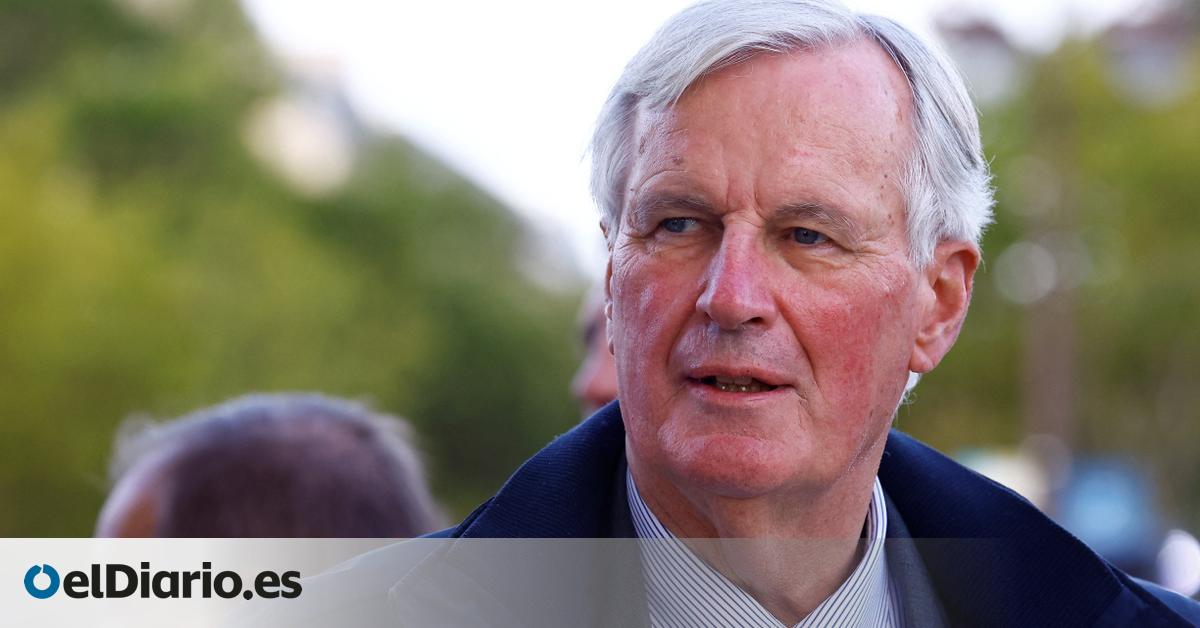
More than two months after Emmanuel Macron accepted the resignation of Gabriel Attal and his government following his party’s defeat in the last legislative elections, France now has a fully-fledged executive, drawn from the ranks of Macronism and the Gaullist right.
The new government team consists of a majority of ministers from the presidential party Renaissance and its allies, despite the fact that in the July elections they fell from being the first to the second parliamentary force. The conservatives of Les Républiques, another minority party to which Prime Minister Michel Barnier belongs, have won several portfolios. There are no ministers from the Union of the Left or from the extreme right Le Pen party.
In France, Macron is the one who formally appoints the ministers and has to give his approval to the cabinet. The president and the prime minister met on Thursday at the Elysée Palace for a meeting that lasted about 50 minutes, during which Barnier proposed his list of names. After several hours of anticipation, the head of the government announced that the portfolios would be presented “before this Sunday” after the necessary checks had been made by the ethics control bodies. It was not until Saturday afternoon/evening – a very unusual time – that the official announcement was made.
A government further to the right
The composition of the new government is in line with those appointed by Macron when his coalition was the largest parliamentary force, but this time there is a strong presence of ministers from the right. The only name from a left-wing party is that of former Socialist MP Didier Migaud, who until now held the post of president of the High Authority for Transparency in Public Life and who will occupy the Justice portfolio.
Much of the right-wing influence emerges from the choice of the new Minister of the Interior, Bruno Retailleau, who belongs to the hardest wing of the Republicans on immigration issues, and has spoken out on several occasions against measures that allow legal avenues to regularize the situation of undocumented people. “An illegal immigrant [sic] “Anyone who enters France illegally should never be granted regular status,” he said in 2022. His appointment and his hard-line conservative stance on immigration and social issues can be interpreted as a gesture towards the far right.
According to several media reports, Macron warned Barnier that Laurence Garnier’s name could cause problems. A former senator for the Republicans, she opposed the legalisation of gay marriage and the inclusion of abortion in the constitution. The mention of her name as a possible family minister provoked criticism from the left and from a part of the presidential coalition. She has finally been appointed to the post of State Secretary for Consumer Affairs. Meanwhile, the Minister of Culture, former minister under Nicolas Sarkozy, Rachida Dati, will keep her portfolio.
As soon as Barnier’s list was leaked to the press, the left was quick to reject it, considering it did not reflect the results of the ballot box. “In Macron’s France, it is the losers of the last election who will form the government,” reacted Manuel Bompard, coordinator of France Insoumise, one of the four parties of the New Popular Front, the progressive coalition that emerged as the largest parliamentary force in the legislative elections. “Why was there a dissolution in June, if it is to end up with more of the same, but more to the right?” denounced the former socialist president François Hollande in an interview with RMC on Friday.
Days of traffic jams and tensions
Since his appointment as Prime Minister two weeks ago, Michel Barnier has been holding more and more meetings to resolve the difficult equation of forming a government capable of manoeuvring in a National Assembly that is more fragmented than ever. A chamber in which his political party, Les Républiques, has little weight (47 deputies out of 577) compared to the New Popular Front, the far right, or the centrist bloc, its main ally.
Although Barnier had promised to announce the composition of the government this week, the deadlock in negotiations in recent days has raised fears of a prolonged blockage, adding further uncertainty to the particularly turbulent political moment that France is going through.
One of the most tense moments this week was the rumours of a possible tax increase. Speaking to Agence France-Presse, Barnier described the country’s budgetary situation as “very serious” and said he had “asked for all the elements to assess the exact reality.” In particular, he referred to France’s growing public debt and the deficit in its state accounts.
The statements, and subsequent speculation about a “fiscal effort”, gave rise to an exchange of statements between figures from different parties regarding this hypothetical tax increase, which Macron’s party and its allies oppose. The far right also threatened to censure the Executive if taxes were raised.
Several MPs from the Macronist coalition had also accused Barnier of wanting to impose an executive dominated by members of his party, which, although in the majority in the Senate, is only the fourth largest party in the National Assembly. In this context, Barnier cancelled two meetings on Wednesday: one with his predecessor, Gabriel Attal, and another with representatives of his own party, Les Républiques. Instead, he went to the Elysée for the second time this week to meet with the president.
On Wednesday evening, the Prime Minister’s office issued a statement denying the accusations. “They do not in any way represent the government project desired by the Prime Minister, who is seeking a balance of sensitivities.”
On Thursday morning, Barnier announced that the day would be “the last day of consultations” before the “rapid formation of a government”. Barnier received separately the President of the National Assembly, Yaël Braun-Pivet, and the President of the Senate, Gérard Larcher. In addition, the Prime Minister met in the afternoon with the leaders of the political parties likely to enter the government, which included all groups except the far right and the parties of the New Popular Front.
According to several French media outlets, Barnier has tried – without success – to court several important members of the Socialist Party, who are part of the current most hostile to the alliances of the PS with France Insoumise. Among them, former ministers of François Hollande, Stéphane Le Foll and Ségolène Royal, have been mentioned.
First test of fire
The new Executive will face its first test of fire on 1 October and the opening of the ordinary parliamentary session. It is foreseeable that the opposition parties will welcome it by presenting a motion of censure in the first days of activity in the Assembly. In this scenario, the position of the parliamentarians of the extreme right will be decisive.
Following a lightning-fast campaign, the legislative elections of 30 June and 7 July saw the left-wing coalition New Popular Front become the largest political force in the Assembly (193 seats), ahead of Macron’s centrist coalition (166) and Marine Le Pen’s far-right coalition (142). These results left the three major blocs far from the absolute majority of 289 deputies (out of 577).
By appointing Barnier, Macron broke with the tradition of appointing a figure from the parliamentary majority in the Assembly, which in this case was the NFP, as prime minister. To do so, he hid behind the announcement by the centre and right-wing parties, including his own, that in the event of a vote of no confidence, they would vote against any figure from the progressive coalition – which had proposed the economist Lucie Castets.
Source: www.eldiario.es

